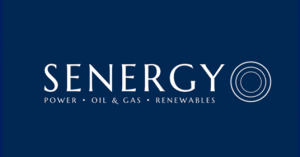“IT WOULD INDUCE A SHORTAGE OF CREDIT, DEFLATION, AND RECESSION
The premise that is basic of argument is getting rid of the banking sector’s ability to produce cash wil dramatically reduce its capability to help make loans, and thus the economy are affected. Nonetheless, this ignores a few essential problems: 1) The recycling of loan repayments along with savings is enough to finance company and customer financing also a level that is non-inflationary of financing. 2) there clearly was an implicit presumption that the amount of credit supplied by the banking sector today is acceptable for the economy. Banking institutions lend a lot of into the times that are goodspecially for unproductive purposes) rather than enough into the aftermath of a breasts. 3) The argument will be based upon the presumption that bank lending mainly funds the genuine economy. Nevertheless, loans for usage and also to businesses that are non-financial for as low as 16% of total bank financing. The remainder of bank financing will not contribute right to GDP. 4) Inflows of sovereign money let the quantities of personal financial obligation to shrink without a decrease in the degree of profit blood circulation, disposable earnings of households would increase, along with it, investing when you look at the genuine economy – boosting income for companies. 5) If there have been a shortage of funds over the banking that is entire, especially for lending to companies that play a role in GDP, the central bank constantly gets the choice to produce and auction newly developed cash to your banking institutions, regarding the supply why these funds are lent to the genuine economy (in other words. to non-financial organizations).
“IT IS INFLATIONARY / HYPERINFLATIONARY”
Some argue that a Sovereign cash system is inflationary or hyperinflationary. There are a variety of explanations why this argument is incorrect: 1) cash creation can just only be inflationary if it surpasses the effective capability associated with the economy ( or if most of the newly developed cash is inserted into an area associated with economy who has no free capability). Our proposals declare that the main bank would have main mandate to help keep rates stable and inflation low. If cash creation feeds through into inflation, the main bank will have to decelerate or stop producing brand new money until inflationary pressures dropped. 2) Hyperinflation is usually an indicator of some underlying financial collapse, since happened in Zimbabwe and Weimar Republic Germany. Once the economy collapses, tax profits fall and hopeless governments may turn to funding their investing through cash creation. The course from episodes of hyperinflation is strong governance, checks and balances are quite crucial to if any economy will probably work correctly.. Hyperinflation isn’t a result of financial policy; it really is a symptom of a state that includes lost control over its taxation base. Appendix we of Modernising cash covers this technique in level, studying the full instance of Zimbabwe.
“INTEREST RATES WOULD BE TOO HIGH”
There’s two presumptions behind this review: 1) A shortage of credit would prompt interest levels to go up to harmful levels. 2) As savings reports would not any longer be assured by the us government, savers would need a lot higher interest levels to be able to encourage them to save.
Parts above describes what sort of money that is sovereign will perhaps not end in a shortage of income or credit throughout the economy, therefore there’s no cause for interest levels to start out increasing quickly.
The next point is disproven because of the existence of peer-to-peer lenders, which operate in the same option to the financing purpose of banking institutions in a sovereign cash system. They simply just take funds from savers and provide them to borrowers, as opposed to producing cash along the way of financing. There’s no national federal federal government guarantee, and therefore savers has to take the increasing loss of any opportunities. The lender that is peer-to-peer a center to distribute danger more than a wide range of loans, so the failure of 1 debtor to settle only has a little effect on a bigger quantity of savers. Even though the more expensive banking institutions reap the benefits of a federal federal government guarantee, as of might  2014, the attention prices on a loan that is personal peer-to-peer loan provider Zopa is 5.7% (for ВЈ5,000 over 36 months), beating Nationwide Building Society’s 8.9% and Lloyd’s 12.9percent. This indicates there is no reason that is logical interest rates would increase under a bank system where banking institutions must raise funds from savers before you make loans, minus the advantageous asset of a taxpayer-backed guarantee on their liabilities.
2014, the attention prices on a loan that is personal peer-to-peer loan provider Zopa is 5.7% (for £5,000 over 36 months), beating Nationwide Building Society’s 8.9% and Lloyd’s 12.9percent. This indicates there is no reason that is logical interest rates would increase under a bank system where banking institutions must raise funds from savers before you make loans, minus the advantageous asset of a taxpayer-backed guarantee on their liabilities.

Leave a Reply
Want to join the discussion?Feel free to contribute!